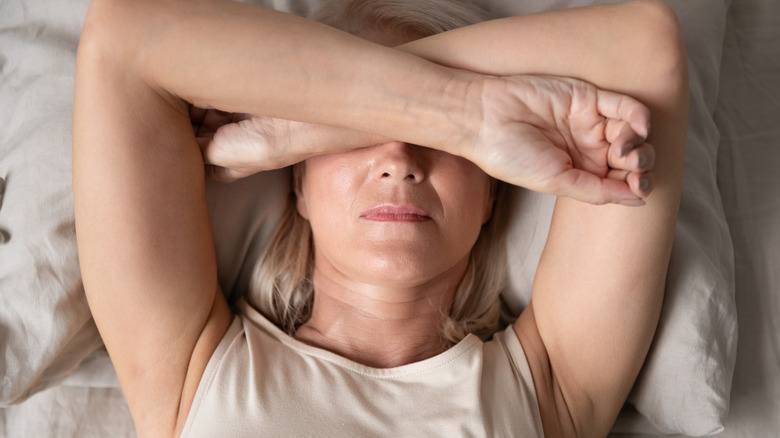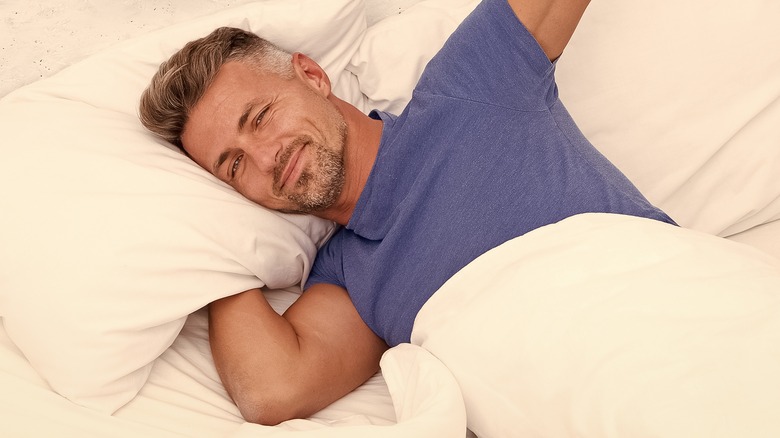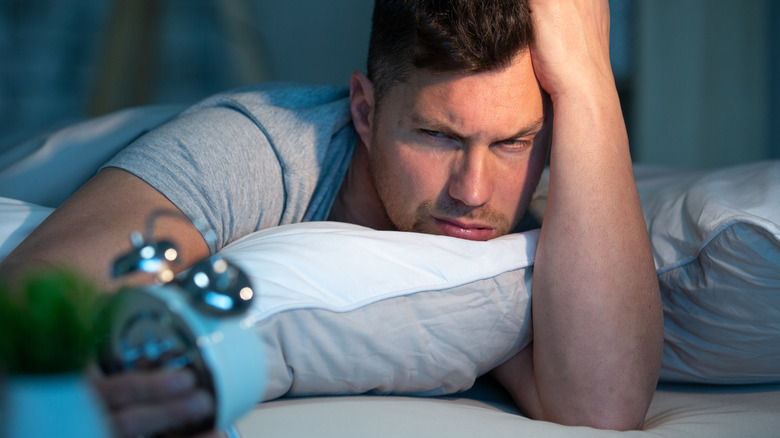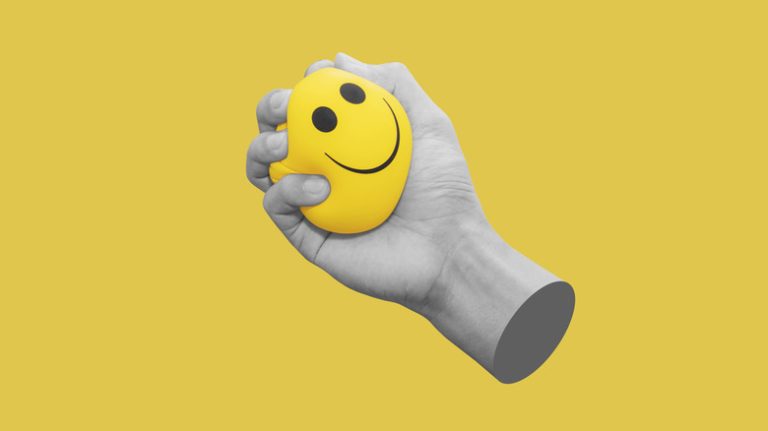Although most of us experience worry every once in a while, people with anxiety disorders will feel this restlessness during everyday events to the point that it disrupts their daily lives (via Mayo Clinic). They will feel nervous and tense or weak and tired. Anxiety disorders can also manifest physiological symptoms such as increased heart rate, breathing, and sweating. The increased worry can also disrupt sleep. The Sleep Foundation says that problems with sleep come from excess arousal caused by stress, and people with anxiety can experience low-quality and low-quantity sleep. According to a 2024 study in the Journal of Anxiety Disorders, the lack of quality sleep can worsen symptoms of anxiety.
Although a 2007 study in Sleep found a clear connection between anxiety and insomnia, the research still isn’t clear if lack of sleep can cause anxiety. The research can get a little tricky. A 2024 study in Sleep found that problems with sleep as a child can predict depression and anxiety. Anxiety can affect daytime sleepiness. When sleep problems and anxiety mix, it leads to a lower quality of life than if someone only experiences anxiety (via a 2009 study in the Journal of Psychiatric Research). What might be helpful is to understand the relationship between sleep and anxiety.
The strong connection between sleep and anxiety

Because sleep issues are so common with anxiety, they are often included in its clinical definitions (via a 2024 study in Dialogues in Clinical Neuroscience). According to a 2024 study in The Journal of Neuroscience, losing sleep affects the amygdala and anterior insula in the brain. These are parts of the brain that are heavily impacted when we feel anxiety (via Hims). This study noticed that people who have anxiety disorders were more affected by the sleep-deprived impacts on the brain.
When we’re experiencing anxiety, it’s difficult to fall asleep, according to a 2024 study in Psychiatry Research. People who have trait anxiety tend to have problems with their REM sleep. We dream during the REM cycle of our sleep, and people who experience anxiety will have vivid nightmares (via Sleep Foundation). This makes people afraid of going to sleep for fear of having another frightening dream. This creates a cycle where people with anxiety have more difficulty with sleep, and their lack of sleep exacerbates their anxiety symptoms.
How to address sleep problems

You might feel that a glass of wine might help you get to sleep, but this can make things worse. A 2024 study in The Journal of Nursing Research noted that if you’re already experiencing anxiety, drinking alcohol intensifies the relationship between anxiety and sleep. The Sleep Foundation suggests practicing good sleep hygiene by avoiding alcohol and caffeine later in the day and keeping your bedroom dark to make it conducive to sleep.
Some relaxation strategies can help. A 2024 study in Complementary Therapies in Clinical Practice saw lowered levels of anxiety and improved sleep when people practiced progressive muscle relaxation. Informed Health suggests autogenic training, which focuses on specific body parts and relaxing them. Imagining a pleasant place while breathing deeply can also help relax you enough to sleep. Cognitive behavioral therapy will help you reframe your negative thoughts. It can also help you identify any patterns that might be interfering with your sleep (via Stanford Medicine).




